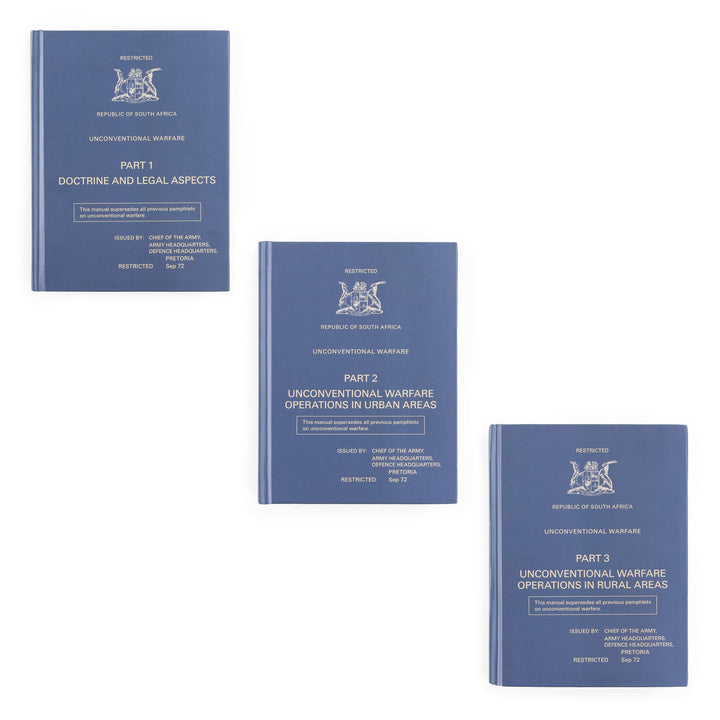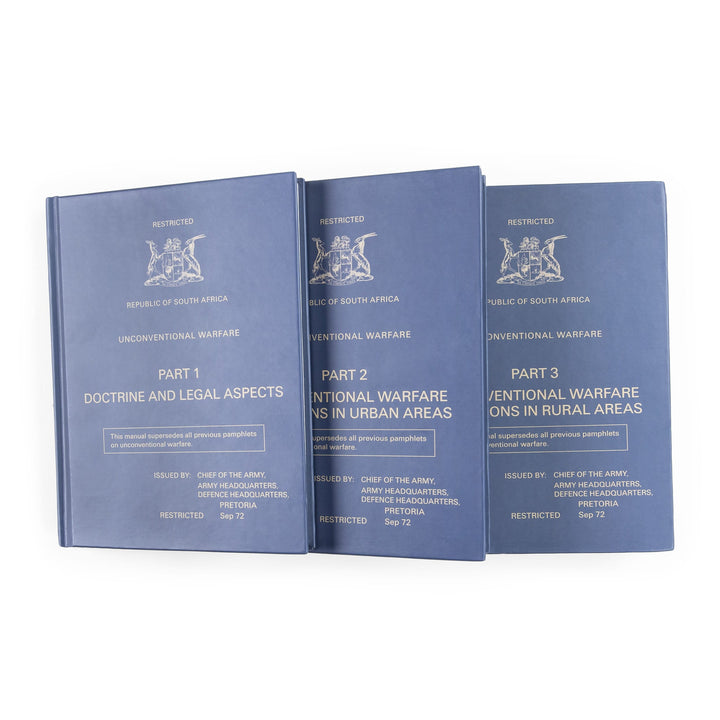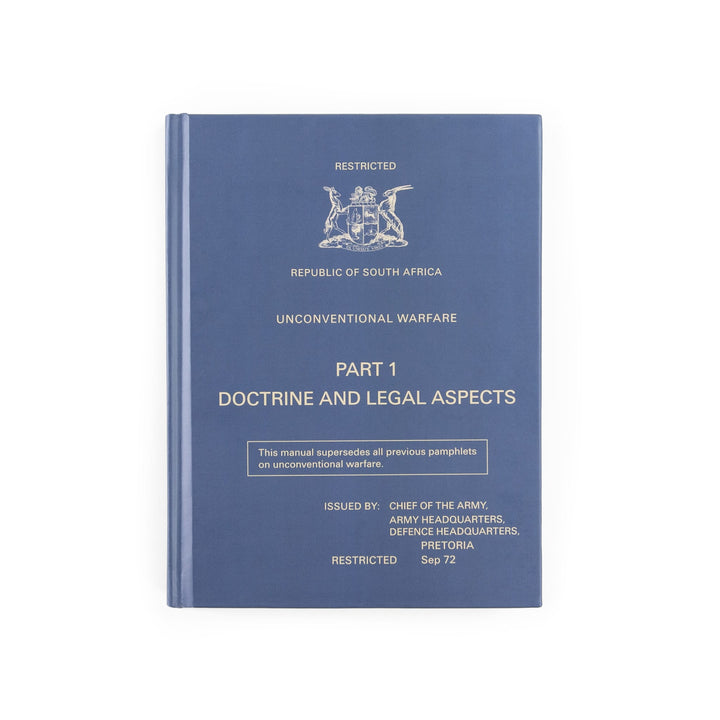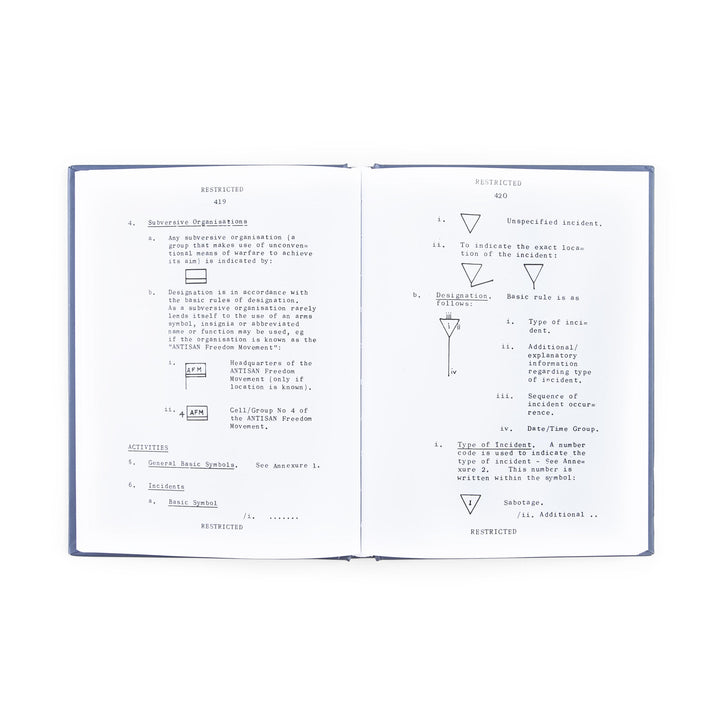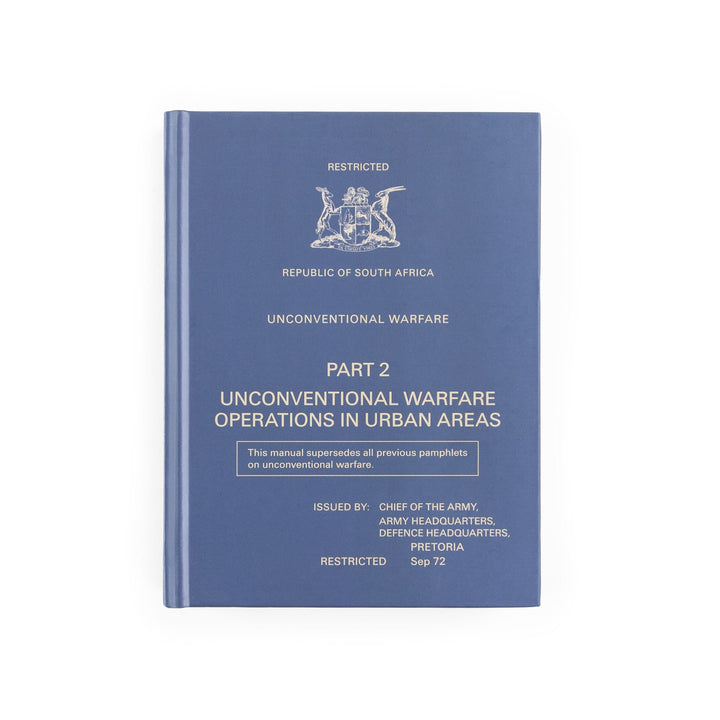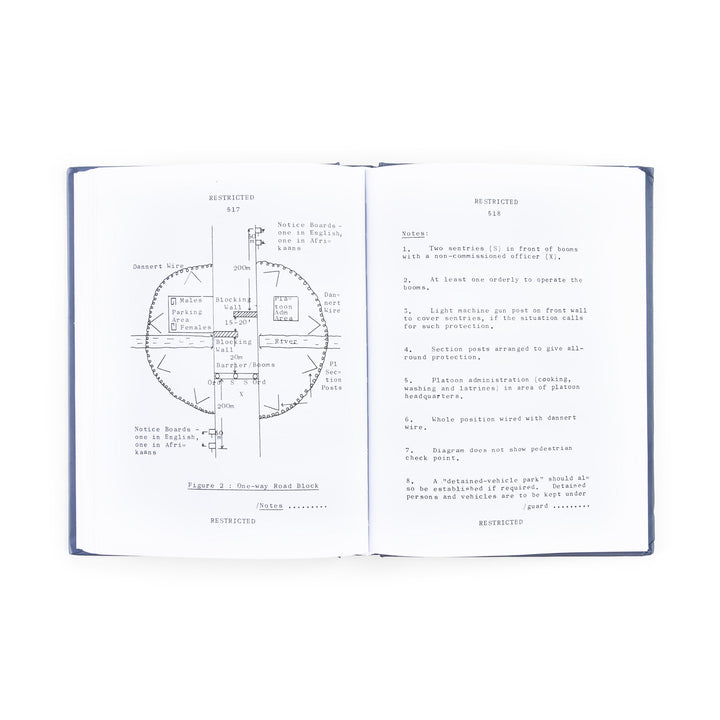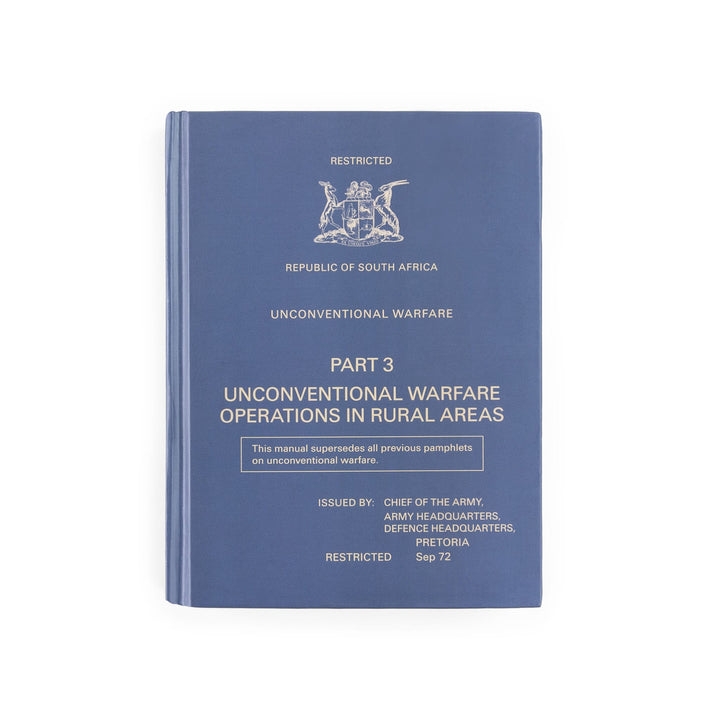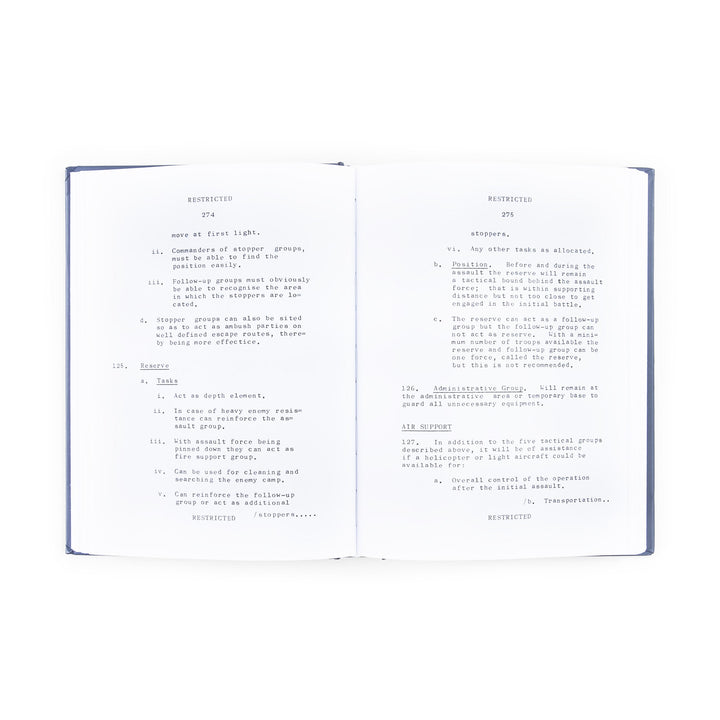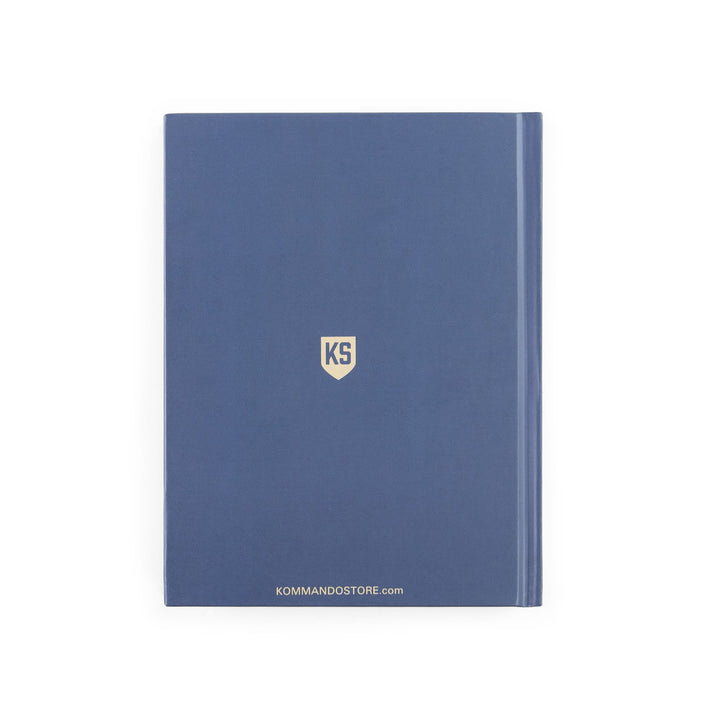Perfection
I love the books, they came in great shape and are very well made, I've had zero issues with the binding or quality! Really glad they were in stock so I could add them to my collection of SADF gear!
The South African Border war went on for over 23 years involving everything from local policing all the up to armored engagements and almost everything else in between. Given our robust history importing South African Defense Force Surplus, we figured it was high time to add some more depth to the interesting history of the South Africans strategy for conducting war.
The Cold War was not cold for South Africa. While most of Europe was playing an elaborate game of ‘who-has-the-most-nukes’, the South African Defense Force (SADF) was hard at work fighting the counter insurgency battles of the future. In the process, they developed and refined much of the tactics, weapons, and equipment used today.
In the 1960s and 1970s South Africans were involved in three major counterinsurgency wars in Sub Saharan Africa: The Congo Crisis (‘60-65), the Rhodesian Bush War (‘64-79), and the Border War (‘66-90). Each of these conflicts were a unique combination of policing action, counterinsurgency and full-scale warfare. The South African Border war was known for its daring cross border raids by its elite counterinsurgency units such as the infamous “Recces”, its particularly brutal and effective policing unit called “Koevoet” and the success of its armored Ratel IFV against T-55s tanks.
The Republic of South Africa developed a rather robust and informative series of military pamphlets regarding how to effectively fight these conflicts. Which means it’s the perfect vetting tool, simply place it on your coffee table and see if the new ‘based’ friend you invited over truly lives up to his claims. Published by the Chief of the Army Headquarters Defense Headquarters in September 1972 this formerly restricted publication is an excellent read for the burgeoning insurgent and counterinsurgent alike (see disclaimers).

Part 1: Doctrine and Legal Aspects
Primarily focuses on the correct application of doctrine by defining what terrorists are along with how to interact with both terrorists, terrorist sympathizers and civilians. Included are examples of appropriate use of force and balancing providing security and safety for the populace while also avoiding infringing on their civil liberties.
Part 2: Unconventional Warfare in Urban Areas
Focuses on applying the correct level of force regarding different scales of civil disturbances and how best to approach them from a police perspective and a military perspective. Additionally, there are detailed maps and schematics of how to effectively set up an urban checkpoint or electrify the exterior of your armored vehicle to prevent unwanted passengers.
Part 3: Unconventional Warfare in Rural Areas
Concerns the more typical guerilla warfare scenarios in a rural environment. From reacting to ambushes, planning ambushes and effective use of artillery, tanks and other supporting assets. It also includes sections devoted to bush survival techniques and proper kit to carry on your person.
Involving everything from how to successfully win hearts and minds by guaranteeing citizens safety and civil liberties to appropriate use of force when confronted with rioters all the way up to how to successfully evade and conduct an ambush. It is both equally applicable in modern insurgencies and counterinsurgencies today. A perfect addition to your living room coffee table and your “Live, Laugh, Long live Rhodesia” decoration on your wall.

Specs
Safety, Legal, and Political Disclaimers
These books are intended for academic study only.
KommandoStore does not assume any responsibility or liability for the use or misuse of the contents of this book.
KommandoStore does not condone or support any political ideology that uses violence or intimidation to achieve their goals.
I love the books, they came in great shape and are very well made, I've had zero issues with the binding or quality! Really glad they were in stock so I could add them to my collection of SADF gear!
Excellent information for defending oil fields or retaking some diamond mines…maybe topple a regime or two for the trifecta.
Knowledge is power and power is good. Idk I'm not good in english but this books are perfects.
These are reprints of 1972 manuals. From a graphics standpoint, it reflects the period it was originally produced. But the *knowledge* inside is still valuable. It is focused on the needs and environment of South Africa in the 1960's & 1970's, so all the specifics aren't all universally applicable. But if you're willing to read deeply, there are lessons worth learning. Add this to your professional library - but READ them first. Mine will go between the USMC 1940 Small Wars Manual, the Rhodesian SAS Manual and near the OSS Field Manuals.




